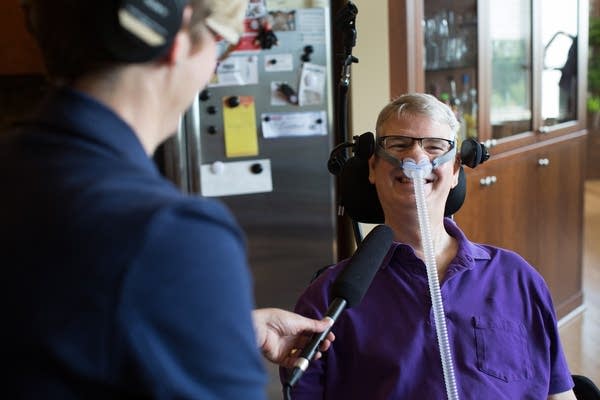Bruce Kramer sets his sights on a 'good death'

Morning Edition host Cathy Wurzer, left, interviews Bruce Kramer, Sept. 4, 2014 at Kramer's home in Hopkins.
Jennifer Simonson / MPR News
Go Deeper.
Create an account or log in to save stories.
Like this?
Thanks for liking this story! We have added it to a list of your favorite stories.


